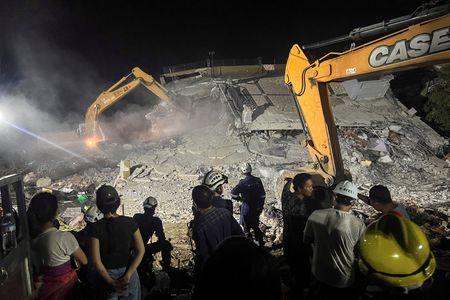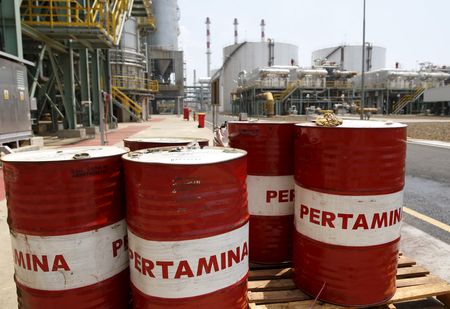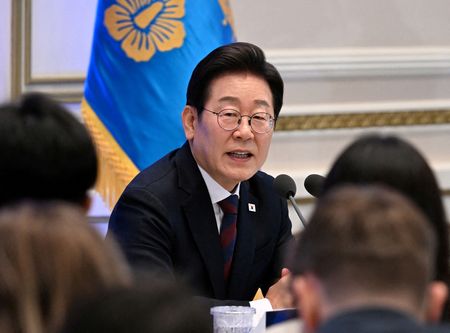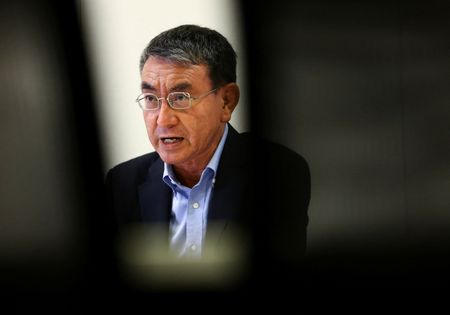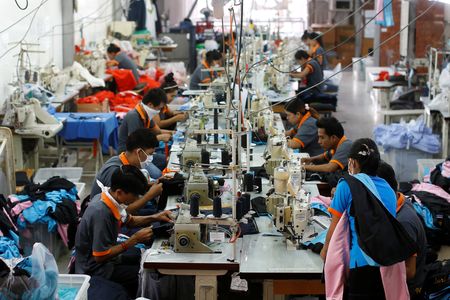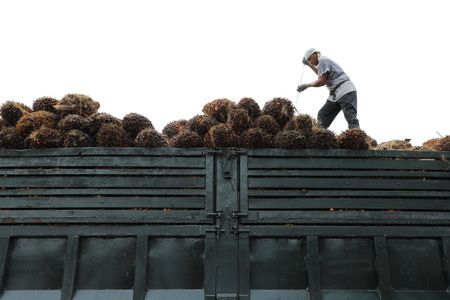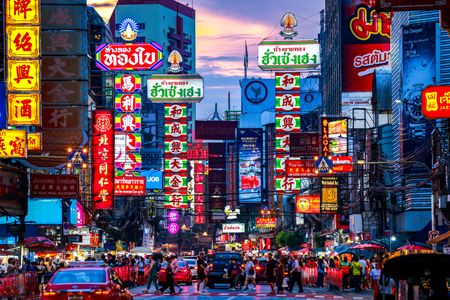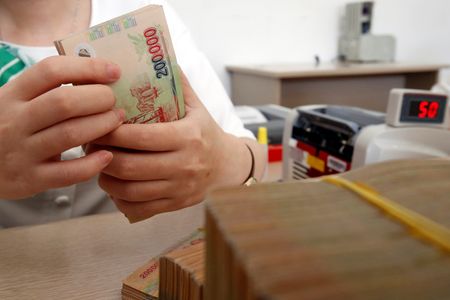By Panu Wongcha-um
BANGKOK (Reuters) -An anti-corruption watchdog had flagged to authorities irregularities it found in the construction of a Bangkok skyscraper before it collapsed in an earthquake last week, killing at least 12 people, the head of the group told Reuters.
Initial tests of materials gathered at the site, meanwhile, indicated the presence of substandard steel among the wreckage of the 30-storey structure, according to industry ministry officials, who added that further analysis was required.
Rescuers were continuing search and rescue efforts on Monday for around 75 people feared still trapped under the rubble of the unfinished tower, which was being built for Thailand’s State Audit Office by a Chinese company and a Thai construction firm.
The government has announced an investigation into the cause of the collapse of the skyscraper, the only Bangkok building to completely crumble when a 7.7 magnitude quake struck central Myanmar on Friday and rattled neighbouring countries.
Mana Nimitmongkol, president of the Anti-Corruption Organisation of Thailand, told Reuters on Sunday it had informed the audit office about its concerns regarding the project. The government had threatened to cancel the project in January due to delays, he said.
The audit office, which has said that it will investigate the cause of the building collapse, did not answer e-mailed questions from Reuters, including whether it had considered cancelling the contract.
Construction of the building began in 2020 and is being carried out by a joint venture between Italian Thai Development PCL and China Railway Number 10 (Thailand) Ltd, a local unit of China’s state-owned China Railway Group.
Italian Thai Development and China Railway Group did not immediately comment on either the watchdog’s comments or the industry ministry’s steel tests when contacted by Reuters.
The tower was originally slated for completion by 2026 but was behind schedule. The deputy auditor general, Sutthipong Boonnithi, told reporters on Saturday that construction was only “30% completed” before it collapsed.
Site visits to the project during construction by the anti-corruption group had raised concerns about delays, worker shortages and possible corner-cutting, Mana said, whose organisation scrutinises some 170 government projects around Thailand.
“Sometimes the number of workers on site were much fewer than there should be, causing delays,” he said. “Potentially there was a rush to complete the project towards the end, which could cause a drop in the standard of work.”
Share prices of ITD closed 27% lower on Monday against a benchmark drop of 1.48%.
NO OTHER BUILDING COLLAPSED
Thai Prime Minister Paetongtarn Shinawatra ordered government agencies on Saturday to investigate the root cause of the building collapse within one week.
The official Thai investigation is looking into the construction plan, the standard of the material used as well as possible unsafe actions during the construction of the building.
Han Zhinqiang, China’s ambassador to Thailand, said on Sunday that China would cooperate in the investigation.
At the site on Sunday leading a team collecting samples from the rubble, Thai Industry Minister Akanat Promphan told Reuters that he was concerned substandard steel may have been used in the construction of the building.
The ministry has shut down seven factories for producing substandard steel in the past six months, seizing 360 million baht (about $10 million) worth of assets, he said.
“Many of these factories used an old production process and equipment relocated from China,” Akanat said.
In response to huge public interest in the disaster, the ministry decided to open testing of the samples to the media on Monday with some outlets streaming it live via Facebook.
Following the tests, which detected some substandard steel in a minority of samples, officials emphasised that it was too early to say if the materials played a role in the building’s collapse.
“We will have to collect more samples to conduct more tests once we can (get access),” one of the officials, Nontichai Likitaporn, told a press conference held at the ministry.
Experts from the council of engineers that is assisting the government in surveying buildings around the Thai capital for earthquake damage speculated that the skyscraper could have collapsed due to unsafe material or poor construction planning.
“It is strange that no other buildings suffered like this,” Anek Siripanichgorn, a board member of the Council of Engineers Thailand told Reuters. “Even other tall buildings under construction, they did not collapse.”
(Additional reporting by Chayut Setboonsarng and Beijing Bureau; Writing by Kay Johnson; Editing by Raju Gopalakrishnan and Joe Bavier)

